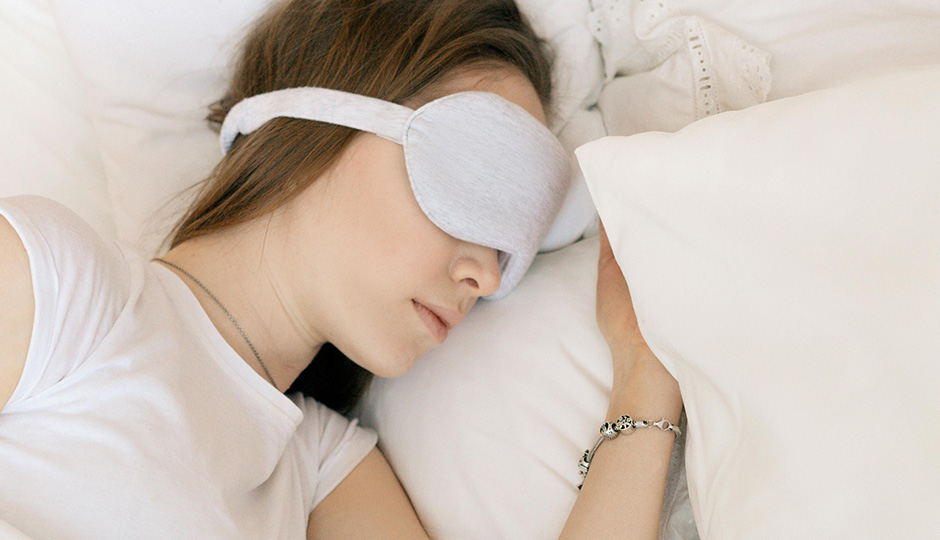Many may look at sleep as a basic human function, like breathing, eating, and drinking. This thought isn’t necessarily wrong, but like these other basic human functions, there are many things that you need to know about getting the proper amount of sleep and how it can affect you if you don’t. You wouldn’t go a week without eating or drinking water, and the same thing goes for getting proper sleep. In both instances, your body starts to shut down.
The average adult needs between 7-9 hours of sleep each night to function at their best. There are 5 stages of sleep; the 1st stage being your very lightest sleep where you are drifting in and out of sleep, which typically doesn't last very long. Stage 2 is still a relatively light sleep however your body and mind start to relax, your heart rate lowers, and your breathing becomes steady. The 3rd and 4th stages are the deepest forms of sleep where your body is fully relaxed, and as you move into stage 4 you enter into the healing stage. This is where your body gets to work on repairing cells, releasing hormones, growing tissue, and other physical recovery. During deep sleep your mind is also healing, detoxifying, processing, energizing, and balancing out. The final stage is known as your REM cycle, which first occurs about 90 minutes after you enter into the deep sleep stages and reoccurs every 90 minutes as you continue sleeping. This is where your dreams take place.
According to sleephealth.org, 70% of adults report occasional insufficient sleep, while 11% report that they experience insufficient sleep every night. Furthermore, the CDC reports that 1 in 3 adults don’t get enough sleep, which they measure by 7 or more hours per sleep daily. If it is imperative to our health to get 7-9 hours asleep as adults, we have to ask the question of why this is so difficult and unattainable for so many people.
Some people have trouble turning their mind off, others suffer from stress and anxiety which keeps them awake, and others simply are aging which can cause changes in sleep patterns. Many times our hormones, like women reaching menopause or men suffering from low testosterone, are to blame when it comes to changes in our sleep patterns and lack of sleep. Some people also suffer from sleep related diseases like insomnia, which is when a person has trouble falling asleep and then staying asleep throughout the night, even when they have the time and opportunity to get a heathy night of rest.
Whatever the reason for your lack of sleep, the result is the same: Sleep Deprivation. Sleep deprivation can cause many symptoms including dark circles and bags under your eyes, sore muscles, memory loss, slow cognitive function, poor motor skills and slow reaction time, weight gain, weakened immune system, blurry vision, skin breakouts, headaches, mood swings, stress, anxiety and depression. Over time, it may lead to the development of chronic illnesses and problems with our body’s Immune system, central nervous system, respiratory system, digestive system and our cardiovascular system. Untreated, lack of sleep can also result in chronic pain like fibromyalgia.
There are things you can do to help get a good night of sleep. Try to create a sleep schedule and stick to it. This means, try to get into bed around the same time every night and wake up around the same time every day. Your body will get set on a routine and it will become easier for you to fall asleep each night. Another good thing to do to improve sleep is to cut off screen time early. Give yourself enough time before bed to let your eyes relax and avoid any screen, including your phone. You can also create a relaxing environment and release stress by reading before bed, drinking tea, or listening to soothing music or white noise. Including exercise into your daily routine, and eating a healthy diet, can also help regulate and improve sleep patterns. There are certain supplements you can add into your daily routine like melatonin and magnesium that can help you sleep as well. You can also get your hormones tested with your doctor to see if your hormones are out of balance and affecting your sleep patterns, which can be fixed by hormone replacement therapy.
Everyone deserves a good night's sleep. At LongevityMed, we can help you find a solution to better sleep and better health through hormone replacement therapy, supplementation, and nutrition. It’s what we do every day and our specialty. Let’s get your health back on track, take our hormone test for Men or Women today or contact us today for a free consultation.




